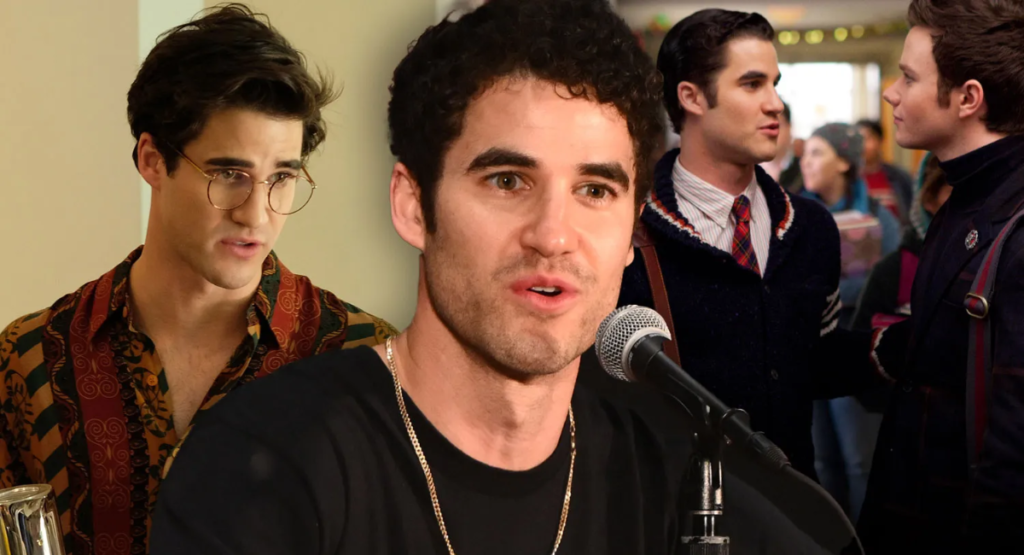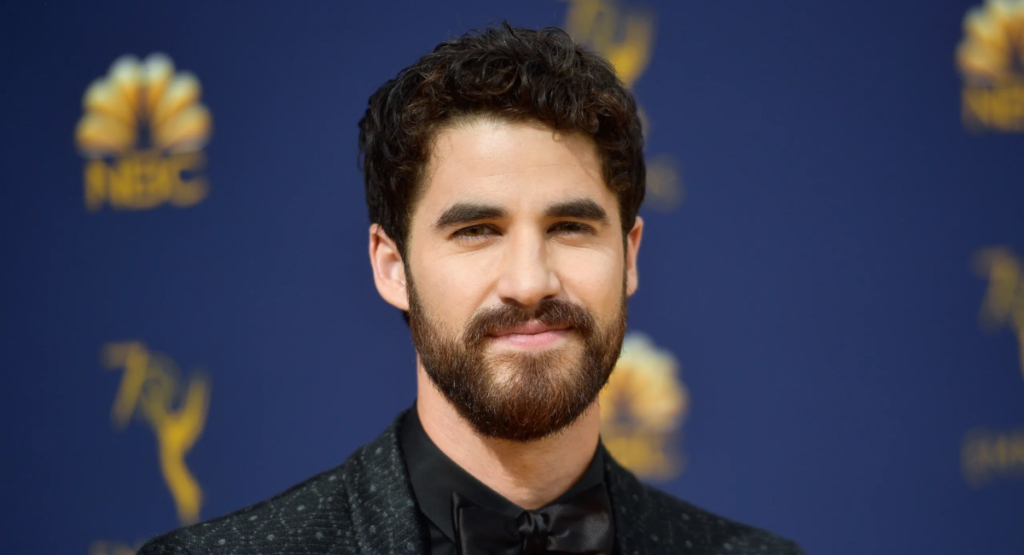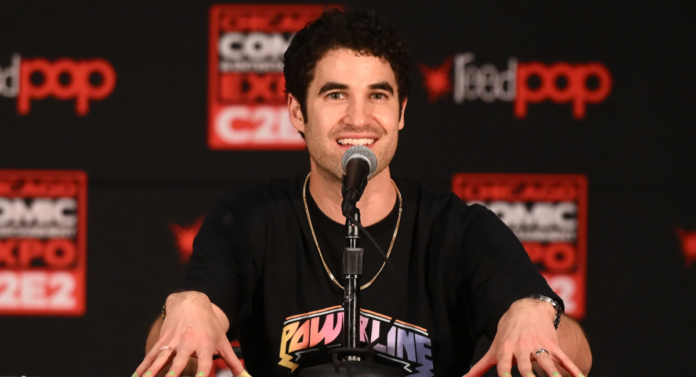Darren Criss recently stirred controversy by describing himself as “culturally queer.” This declaration, made at the Chicago Comic and Entertainment Expo, has sparked a nuanced debate about allyship, identity, and the boundaries of cultural appreciation.
While Criss, known for playing queer characters like Blaine in Glee and Andrew Cunanan in The Assassination of Gianni Versace, intended his comment to be a nod to queer culture’s impact on his life, reactions have been mixed.
What Does It Mean to Be “Culturally Queer”? Understanding Darren Criss’s Statement
During his discussion at the Chicago Comic and Entertainment Expo, Criss reflected on how queer culture has influenced his life and career.
He explained that he’s “so culturally queer” because the things he’s admired, learned from, and drawn inspiration from are “100 percent queer.”
Growing up in San Francisco during the 1990s, Criss witnessed the struggles of LGBTQ+ individuals, describing how “men were dying” and acknowledging his exposure to the realities of the queer experience.
This statement, intended as a show of solidarity and respect, underscores the actor’s lifelong appreciation for queer culture. Criss has portrayed numerous queer characters, such as Blaine in Glee and the lead role in Hedwig and the Angry Inch.
While he identifies as a straight, cisgender man, his intention was to highlight his deep engagement with LGBTQ+ communities and cultural influences throughout his life.
The Controversy Surrounding Darren Criss’s LGBTQ+ Allyship – An In-Depth Look
The term “culturally queer” is relatively new and lacks a clear definition, but according to PFLAG, some LGBTQ+ individuals use it to describe allies who go above and beyond in demonstrating their support and understanding of queer culture.
However, this concept has raised questions within the LGBTQ+ community, where many feel that terms like “culturally queer” may dilute the identity or suggest queerness is merely a cultural expression rather than a core part of one’s identity and desires.

Critics like journalist Louis Chilton argue that the term “culturally queer” fails to recognize the unique struggles and experiences of the LGBTQ+ community.
Chilton writes, “The very idea of ‘cultural queerness’ as being meaningfully distinct from actual lived queerness suggests a binary notion of ‘straight things’ and ‘queer things’ that are separate and removable from sexuality itself.”
The concern is that identifying as “culturally queer” could create an impression that queerness is a cultural aesthetic rather than a lived experience.
Why “Culturally Queer” Sparks Debate: The LGBTQ+ Community Weighs In
Reactions to Criss’s comment are divided. Some argue that his statement is an extension of cultural appropriation, similar to other instances where people adopt marginalized identities without experiencing the struggles associated with them.
Drawing parallels to other communities, Chilton notes instances of white people claiming to be “culturally Black” or “culturally Japanese,” which have also faced backlash for appropriating identities and lived experiences.
However, others see Criss’s statement as a well-meaning attempt to show respect and admiration for queer culture. Many fans appreciate his long-standing support for LGBTQ+ rights and representation.
Esther Kang from People shared Criss’s comment that playing Blaine Anderson in Glee was “f—ing awesome” and something he cared deeply about because it gave voice to queer relationships on mainstream television.
Timeline of Darren Criss’s LGBTQ+ Roles
To understand the significance of Criss’s relationship with LGBTQ+ roles, here is a timeline of his major queer roles:
- 2010-2015: Played Blaine Anderson on Glee, one of the first openly gay high school students on mainstream TV.
- 2018: Starred as Andrew Cunanan in The Assassination of Gianni Versace, a dark role that portrayed the life of a complex queer character.
- 2019: Took on the lead in Hedwig and the Angry Inch, a queer musical about identity and transformation.
This trajectory has made Criss a celebrated ally in the LGBTQ+ community, leading some to question whether his latest comments detract from or support his previous advocacy efforts.
“Cultural Queerness” and the Challenges of Allyship
Darren Criss’s comments also invite a broader conversation about allyship in the LGBTQ+ community. Allyship is generally about supporting LGBTQ+ individuals while recognizing that allies don’t share the lived experiences of queerness.
By identifying as “culturally queer,” Criss may have blurred this line, which some say risks misrepresenting what it means to be part of the LGBTQ+ community.

For those who support Criss, his comment is seen as an attempt to express solidarity and honor queer culture’s impact on his life and career.
As Criss mentioned in 2018, he decided not to take future LGBTQ+ roles to avoid overshadowing opportunities for queer actors. He stated, “I want to make sure I won’t be another straight boy taking a gay man’s role.”
Conclusion
In conclusion, Darren Criss’s declaration of being “culturally queer” has sparked significant debate within LGBTQ+ communities and beyond.
While his admiration for queer culture and commitment to allyship are commendable, the terminology he used raises questions about the authenticity of identity and representation.
This discussion underscores the complexities of allyship, the importance of respecting lived experiences, and the need for thoughtful language when navigating issues of sexuality and cultural identity in contemporary society.
FAQ’S
What does Darren Criss mean by “culturally queer”?
Criss described himself as “culturally queer” to highlight how queer culture influenced his life and career. He intended to show appreciation for LGBTQ+ influences rather than suggest he identifies as queer.
Why has Darren Criss’s statement sparked controversy?
Some view the term “culturally queer” as an overreach, suggesting that queerness is a cultural identity that can be adopted rather than a lived experience tied to one’s sexuality and identity.
What roles has Darren Criss played that connect him to LGBTQ+ themes?
Criss has portrayed several queer characters, such as Blaine in Glee, Andrew Cunanan in The Assassination of Gianni Versace, and the lead in Hedwig and the Angry Inch.
Is “culturally queer” a common term in LGBTQ+ communities?
The term isn’t widely recognized but is used occasionally to describe allies who have a strong engagement with queer culture. It remains controversial because it may blur the lines between allyship and lived experience.
How has the LGBTQ+ community responded to Criss’s statement?
Responses are mixed. Some appreciate his support for queer culture, while others feel his statement diminishes the unique lived experiences of LGBTQ+ individuals.


